Keyword density is the number of times a keyword appears in a blog post or a web page.
In traditional SEO, if you repeated a specific word the right number of times, there was a chance to rank for that on Google.
These days, Google is not so stupid that it would let content creators manipulate search results this easily.
These days, you shouldn’t worry about keyword placements at all.
Let me show you what I mean and why.
Why Keywords Don’t Matter?
I’ve built a bunch of profitable blogs without ever thinking about keywords when I write.
For example, here’s the performance of my most recent blog I launched 5 months ago.
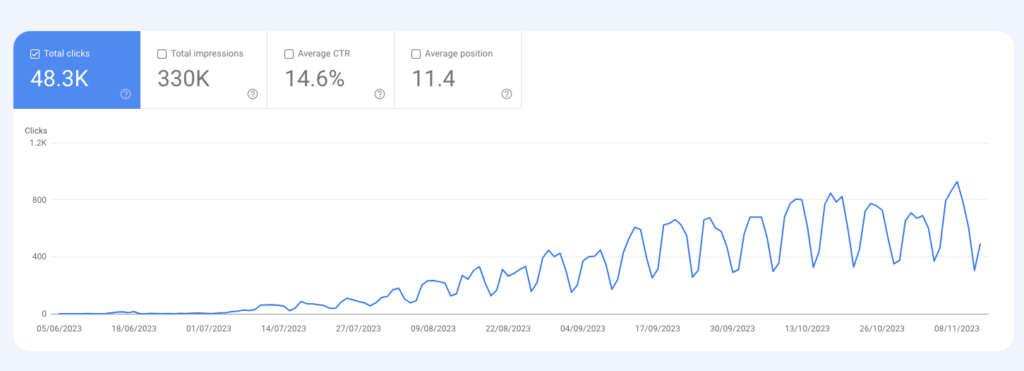
For this site, I built no keywords, backlinks, guest posts, or any other cheats.
All I did was write content for people in my niche.
What most SEOs seem to miss is that these days, Google is better and better at reading blog posts like humans do.
Things Were Different, Though
I don’t think SEO people are evil. They’re just sharing outdated advice.
This applies to keyword placements and keyword densities.
In the earlier days of Google (and SEO), Google had to rely on keywords and links to determine how to rank a web page.
But these days, Google’s AI is more and more like a human.
It’s a multi-dimensional system that analyzes and understands nuances in our text. It’s less and less like a silly bot.
Example 1
If you wrote a post “best automobiles” 10-20 years ago, it might have ranked for “best automobiles” but not for “best cars”—even though they are the same thing.
These days, Google understands context and concepts better.
It can be seen that the words “automobile” and “car” mean the same things.
You can see this by using Google and searching for “best automobiles”:
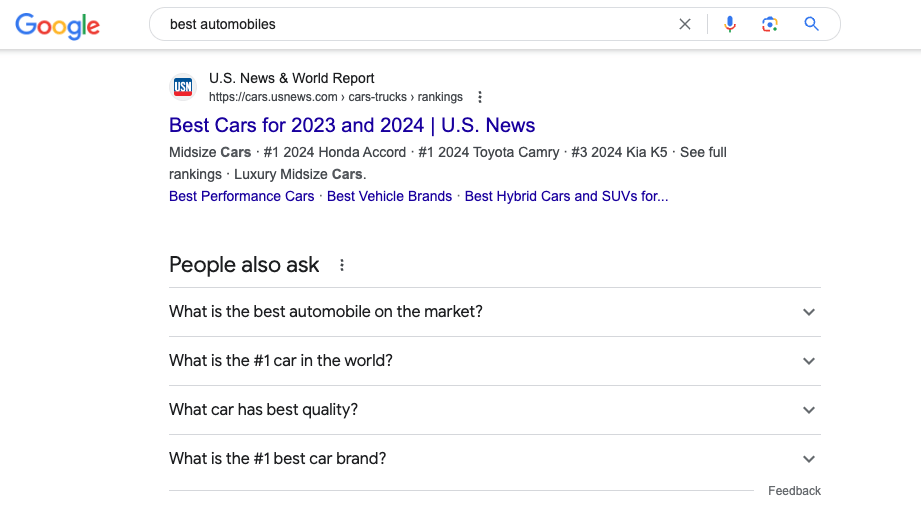
This already shows you that keywords don’t matter anymore.
What’s even funnier is that the entire page doesn’t say “automobile” once—yet it still ranks for it.
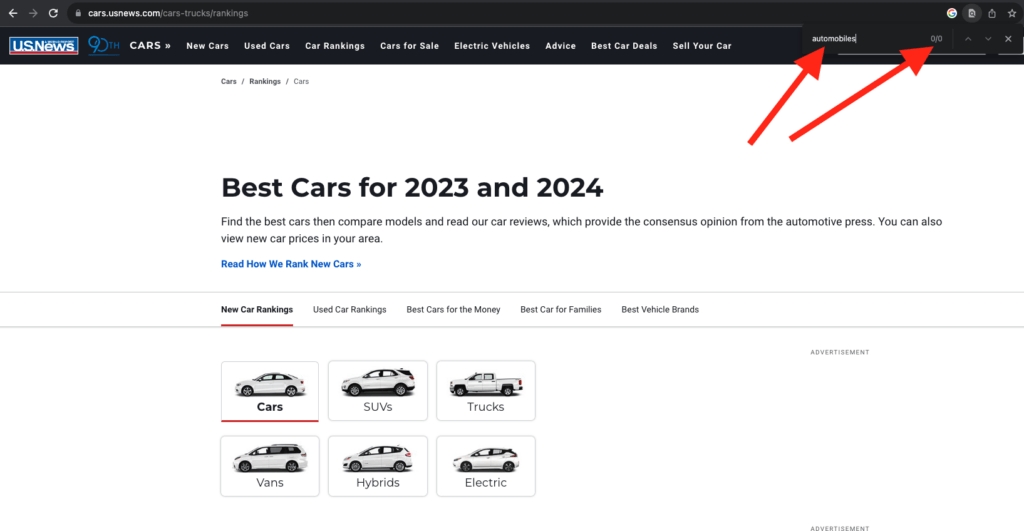
Google knows that when people search for automobiles, they want to see cars.
No matter how many times a page repeats the word “automobile” it will never rank for that.
Let’s have a look at another example.
Example 2
Let’s use Google to search for “what are the absolute best tools for creating images with AI”.
If we use the allintitle: operator on that search, we can see that no blog post would directly answer this question.
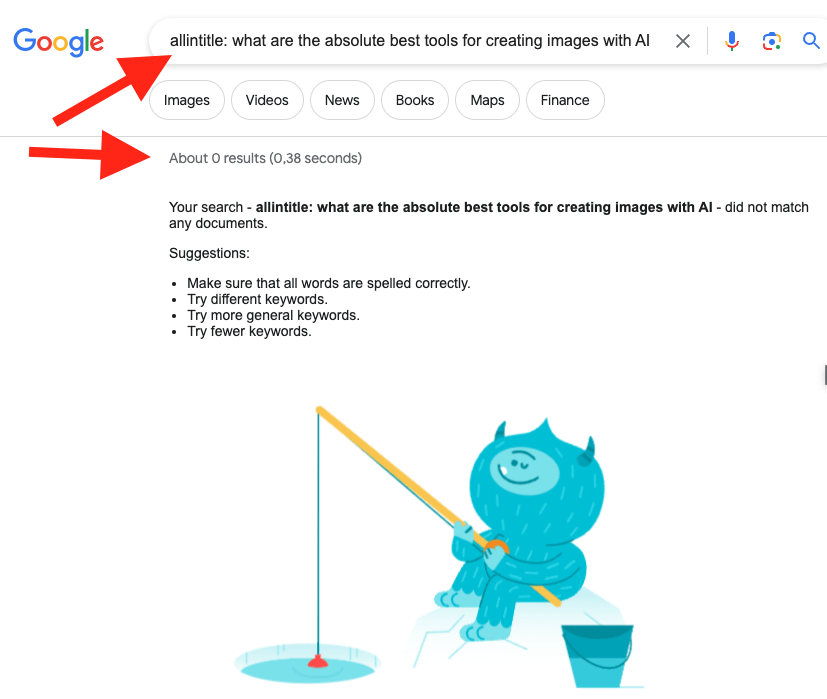
But if we do a normal search with that, we still get a ton of results:
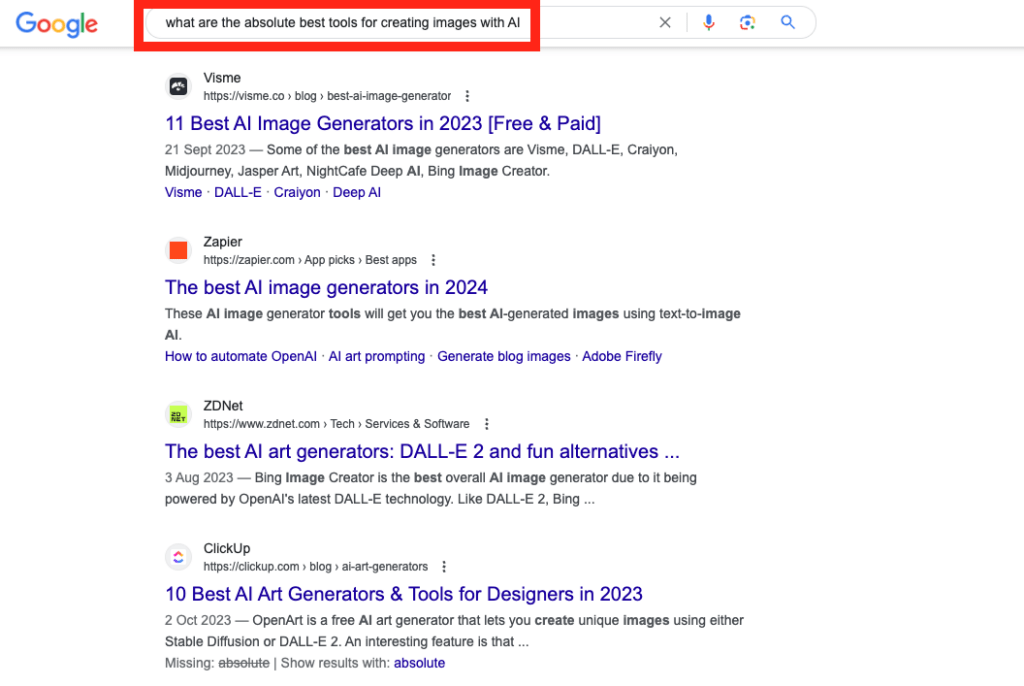
This is because Google is clever.
It knows that “what are the absolute best tools for creating images with AI” is exactly the same as “Best AI Image Generators“.
If Google was stupid, you wouldn’t get any search results for that long search. But because they no longer rely on exact match keywords or phrases, that’s no longer the case.
Google knows the searcher’s intent and what results to show without keywords or anything.
Even if you wrote a post with the exact title “What are the absolute best tools for creating images with AI“, Google still wouldn’t show your post at the top of the search results.
Google knows there are better results than your post. Even though your post apparently directly answers the question.
So it’s not about keywords. Instead, it’s all about relevancy, quality, and originality.
Keywords Don’t Matter
I’ve written 1,000+ blog posts and have got more than 6,000,000 reads in the past 2 years.
I’ve never worried about keywords as I write.
Of course, I research the topics I write about. I don’t want to write about something that nobody cares about.
Keyword Research: A Complete Guide (Without Paid SEO Tools)
But when I write, I just focus on the topic. That’s it. The best “SEO advice” one can give.
I want to write content that solves my visitor’s problems as cleanly and as decisively as possible.

Nothing else matters.
If you try to place keywords in your posts “strategically”, you can only do harm. Your posts will end up looking unnatural and robotic.

Also, Google can very easily see if you’ve placed keywords in unnatural places.
💡 Speaking of silly SEO hacks, I’ve also noticed that building links, using expensive SEO tools, and writing guest posts are all a waste of time.
These days, SEO is ironically no longer about search engines.
How about Those Keyword Density Tools?
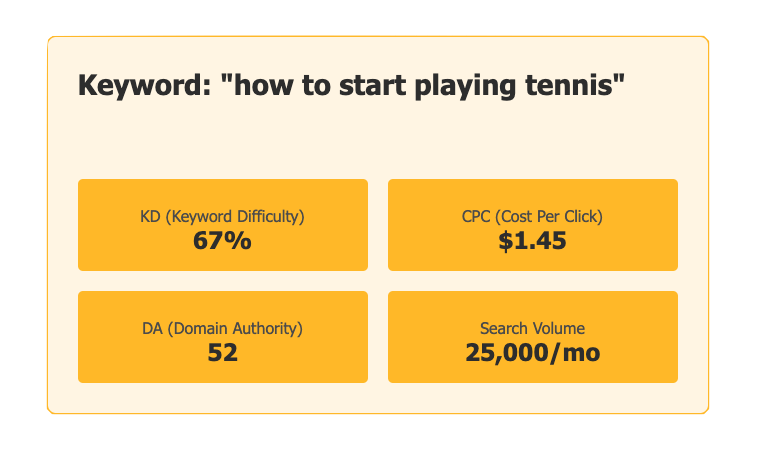
If you’ve seen an SEO/AI SEO tool that monitors the keyword density of your blog content, think twice.
Those are of course telling you that keyword density matters and that their awesome tool can fix it for you.
But this is just because they’re trying to sell their products.
But it’s not all 100% bad.
If you run your blog post through a keyword analyzer, you sometimes might find “missing keywords”.
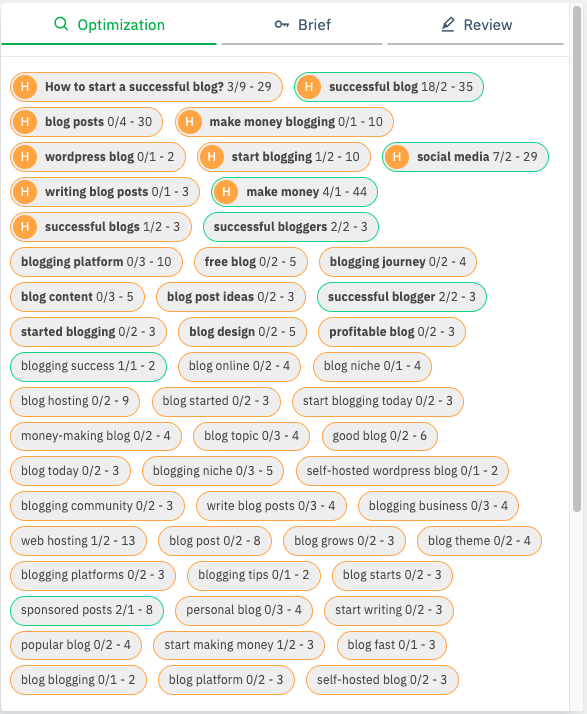
For example, let’s say you’re writing a blog post about “How much electricity does a Tesla consume?”.
If a keyword density tool tells you that you’ve not mentioned “Electric charger locations” in your blog post, that might actually be insightful.
It can indeed be a good idea to add a brief section or mention those in your post, right?
Of course, if you plan your content carefully enough, this never happens to you.
But remember, it’s not about keywords.
It’s all about solving your visitor’s problems. Don’t just include random keywords in your blog posts to make them rank.
That’s just cheating and Google can see that from miles away. It’s much easier to forget about keywords in the first place.
I don’t use any SEO tools, keyword placement strategies, or any other SEO tactics for that matter.
To Take Home
Don’t worry about keywords. Just stay on your topic and write for people.
Chasing the algorithms is never a good idea.
I come from a software developer/scientific background.
As much as I’d like to have an equation for ranking a blog post, I simply can’t. The search ranking systems are sophisticated and they appreciate the readers’ needs. There’s no equation or one-size-fits-all solution for ranking a blog post.
No amount of keywords, links, or words will help.
Basically, you don’t need to have any idea how Google ranks websites to build a successful site.
It’s just that the SEO industry is trying to confuse us all. But hey, how else could they sell their $999/mo products?
Nonetheless, I hope you never think about keywords again. Just write for people and solve their problems. That’s the only long-term strategy.
